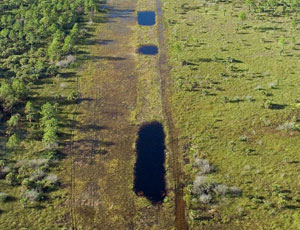An Aug. 13 agreement between state and Federal authorities resolves long-standing issues and promises to remove bureaucratic obstacles to the restoration of the Everglades in South Florida under the Comprehensive Everglades Restoration Plan (CERP). The �master agreement� establishes uniform terms and conditions for the project partnership agreements under which the U.S. Army Corps of Engineers and the South Florida Water Management District will cooperate and share costs for the CERP projects.


“The master agreement allows us to move forward on construction on any CERP project,” says Kenneth Ammon, the South Florida Water Management District’s deputy executive director for Everglades restoration. “It’s a huge win for the taxpayer.”
Congress established CERP in 2000 as a 50-50 partnership with the State of Florida to restore the dying Everglades ecosystem. The original budget of $8.7 billion has grown to $10.9 billion and is projected to grow much more, while estimated completion dates have slipped. Of about $3 billion spent to date, Florida has contributed $2.6 billion, mostly to buy land where CERP projects are to be sited, while the Federal government has spent only a bit more than $400 million.
But deciding on how to account for the shared costs has been a sticking point. Credit for land acquisitions was the most significant issue, says Nanciann Regalado, Corps spokeswoman. Florida’s property values soared in many cases after CERP properties were acquired, and notice to proceed was blocked pending settlement of disagreements between the Water Management District and the Corps over whether the state’s contribution would receive credit for the original purchase cost or for fair market value.
The Corps and the district have five pre-project partnership agreements totaling “hundreds of millions of dollars,” Ammon says, and the master agreement sets the terms and conditions for all of them to proceed as soon as Congress authorizes and appropriates the funds. Already, $65 million of appropriations were stuck in the pipeline for restoration of Picayune Strand, an 85-sq-mile failed development in Collier County that is fully purchased. Its drainage was halted by plugging canals and removing roads a few years ago, but pumping stations and other construction still are needed to complete its return to a relatively natural state.


Post a comment to this article
Report Abusive Comment